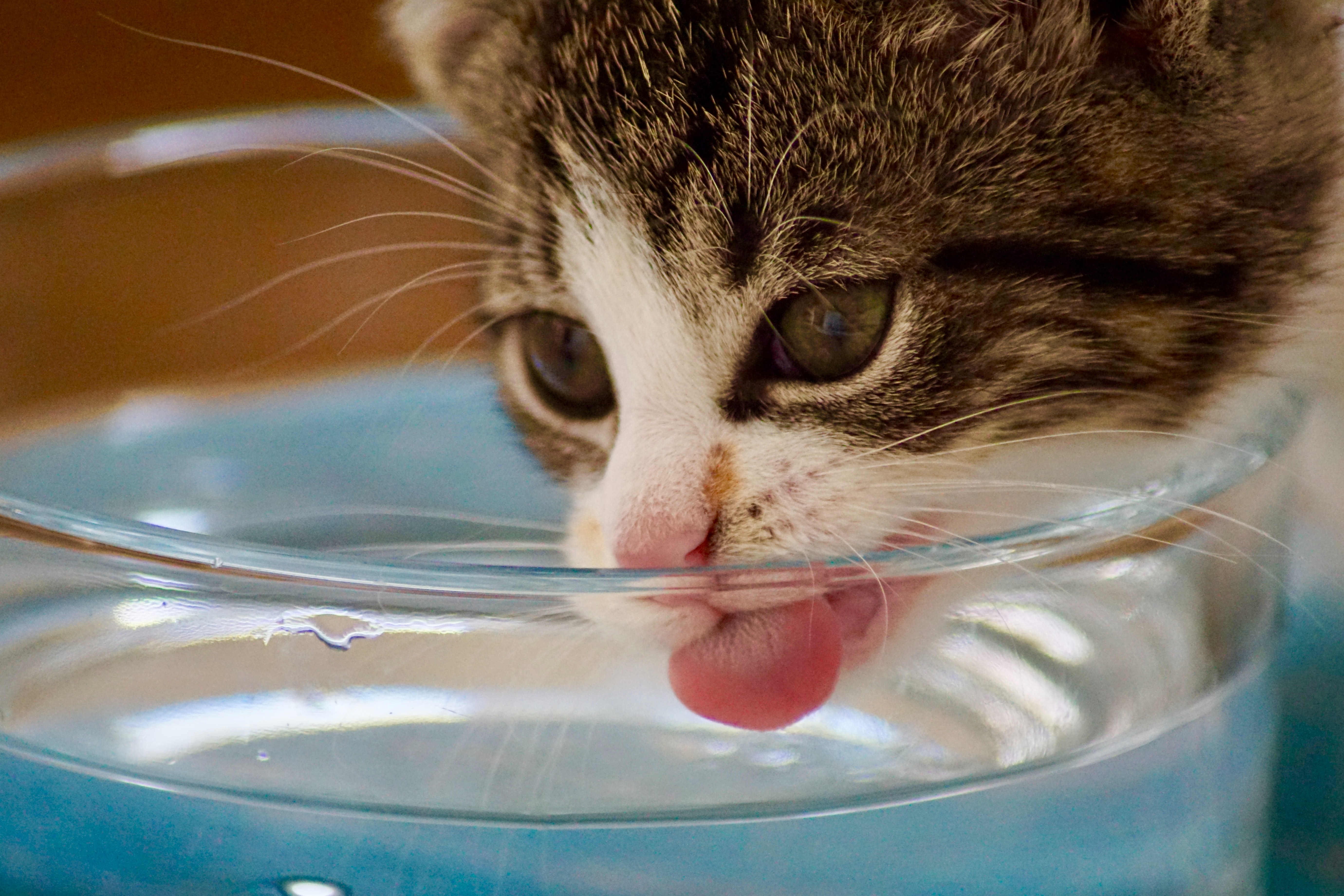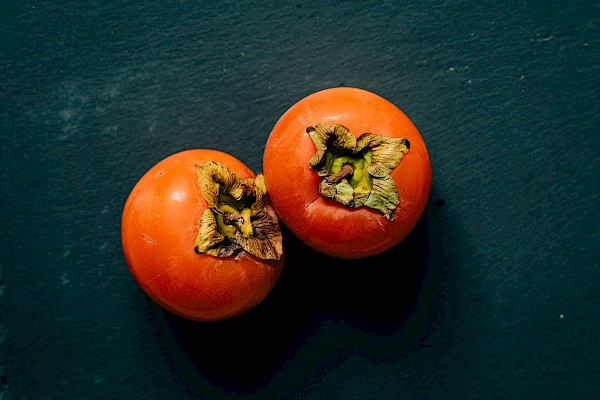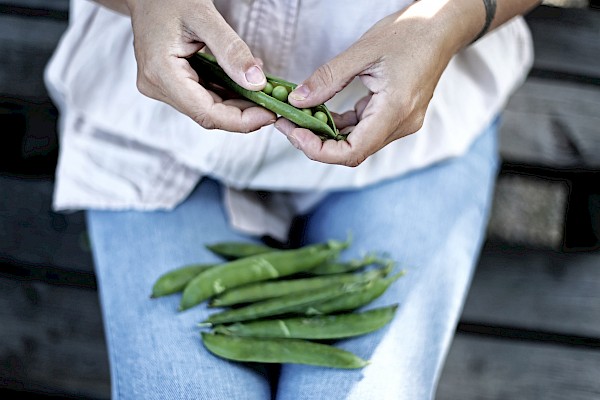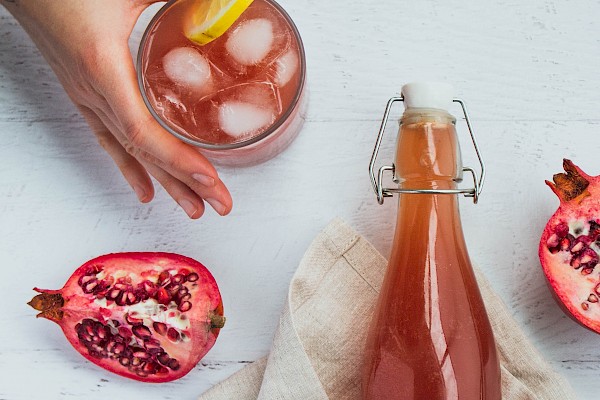Sip by sip
Bad moods are not just caused by hunger, but by thirst too!
Water makes up almost three-quarters of our bodies. The brain – our control centre – is particular-ly reliant on water, consisting as it does of 77% water. No wonder that it really suffers from loss of fluids. A few hours after the last drink, cognitive functions such as concentration, reactions and learning abilities begin to decline significantly.
The water in our bodies performs several tasks: it functions as a solution and transport medium for enzymes, hormones and nutrients, and is indispensable for eliminating waste substances. In addition, it supplies the skin and tissues with moisture and regulates body temperature. This much is clear: water is vital!
How much fluid do we need?
Our bodies are permanently losing water, and not just via the kidneys (urine) or bowel (stools), but also through the lungs and skin. Although we emit water vapour with every breath, like a steam engine, we are seldom aware of it. We are also constantly losing water via the skin, without notic-ing, by evaporation. Only when we sweat, when our bodies can lose a noticeable amount of wa-ter in order to regulate temperature, are we consciously aware of losing fluid. “Fortunately” you might be thinking now, and you are certainly not alone if so. Imagine how it would look if we hu-mans were always wet through, steaming our way through life. Yes, it’s good that this isn’t the case, even if it sometimes almost is in the tropics.
But back to the actual question of how much fluid we need. As our bodies are always losing wa-ter, we must regularly supply them with new fluids by eating and drinking. In a healthy, barely physically active adult, the amount of fluid needed amounts to approximately 30-35 ml per kg of body weight. A person weighing 70 kg therefore needs a regular total fluid intake (food and drink) of approximately 2 to 2½ litres. And don’t forget that our fluid requirements rise significantly under certain conditions. In summer when it is very hot, and when we exert ourselves physically (e.g., sport), when the surrounding air is very dry, when our salt intake is very high and when we are ill (e.g., diarrhoea, vomiting, fever), our bodies need considerably more fluids.
How much should you drink per day?
The goal of sufficient fluid intake is to replace these losses and, at the same time, to not exceed the kidneys’ excretion capacity. Excessive fluid intake is actually just as dangerous as not taking in enough fluids over a long period. If you observe the nutrition recommendations in the Swiss food pyramid (link: https://www.psgz.ch/themen/ernahrung/), you already “eat” more than 1 litre of water per day. In particular, the recommended five portions of fruit (80-95% water) and vegetables (up to 95% wa-ter) supply a large amount of fluid. Except for oil and sugar, all foodstuffs contain significant amounts of water: bread 35%, meat and fish 65-70% and cereals 12%.
The recommended intake of fluid by drinking is therefore the difference between the recommend-ed total fluid intake and the intake of water via solid foods, and amounts to approximately 1 to 2 litres per day for adults.
When should you drink?
Unlike camels, humans cannot create water reserves. If you quickly drink a litre of water, you will need to go to the toilet relatively soon, due to your full bladder. Your kidneys will work at full pelt to eliminate the water. Then you will feel thirsty again about two hours later. That is why a regular intake of fluid spread out across the day is better.
Thirst is a good indicator in healthy adults. That is the latest you should have a drink. How thirsty you feel, and when, changes over the course of your life and decreases as you get older. There-fore older people should make sure that they drink regularly even if they don’t feel thirsty. Drinking is easier to forget than you realise, and a high level of dehydration may have serious conse-quences for your health, and even cause death.
You can use Hahneburger’s drink calculation app to work out your approximate fluid intake and calculate the recommended amount to drink. You will also receive more useful information about a healthy fluid intake.
The best thirst quencher: water!
Water – from the tap or mineral water – is categorically the best drink for your body. If you choose water as your basic drink, your body and your health will benefit.
Sure, there are more bubbly, more aromatic, more colourful and bitterer drinks, as the many drinks on offer in the shops will show. Water is, in a manner of speaking, the wallflower of drinks, at least if you believe a drinks advertising campaign. However, for our bodies and our health, water is an-ything but a wallflower. With health in mind, water takes the number 1 spot and leaves all other drinks far behind. This does not mean that you should not treat yourself to another drink every now and then. It is important for your health that water remains your basic drink: the rule, not the exception.
If you are interested in the mineral content of the various mineral waters available in Switzerland, or you want to know more about drinks, you can read about this in the leaflet on fluid require-ments and drinks produced by the Schweizerische Gesellschaft für Ernährung.
Bad mood. Had enough to drink?
Bad moods are as much a part of life as bad weather. Sometimes we know the reason for a filthy mood, sometimes we don’t. But lots of people don’t know that dehydration depresses the mood. Studies show that an insufficient fluid intake is associated with more negative feelings. If you drink too little and suppress your feelings of thirst, your concentration and performance will de-cline, but your mood will worsen too. So, when you’re in a bad mood, it can be worth calculating how much you have already drunk today. Drink a glass of water and, who knows, maybe a smile will appear on your face – as if by magic!
How does dehydration make itself felt?
Dehydration doesn’t just affect our emotions and moods. With a water loss of only 1-5% of body weight, you may already notice symptoms such as thirst, feeling unwell, restlessness, nausea, loss of appetite and an increased pulse rate. Water loss further makes itself felt in headaches, dif-ficulty concentrating, decreased reaction speeds and reduced physical performance. If you be-come aware of any of these signs and haven’t had anything to drink for a long time, you should definitely make up for it and drink some water. You will then feel better and your health will thank you for it. Meaning: cheers! Your very good health!
Further information and links:
- Hahnenburger – Information and tips about drinking water
- Aqua Suisse – Information on drinking water quality in Switzerland
- Flyer: Water, the best drink for children
References:
Liska, D., Mah, E., Brisbois, T., Barrios, P. L., Baker, L. B. & Spriet, L. L. (2019). Narrativ review of hydration and selected health outcomes in the general population. Nutrients, 11, 70.
Popkin, B. M., D’Anci, K. E. & Rosenberg, I. H. (2010). Water, Hydration and Health. Nutr Rev, 68 (8).
Schweizerische Gesellschaft für Ernährung SGE (2011). Flüssigkeitsbedarf und Getränke. Merkblatt. Bern: SGE-SSN.
Walden, M., Mayländer, S. & Kaeding T. S. (2018). Drinking patterns and fluid intake in the settings workplace and university: a systematic review. Journal Nutrition Health Science, 5 (4).
 subscribe to newsletter
subscribe to newsletter


